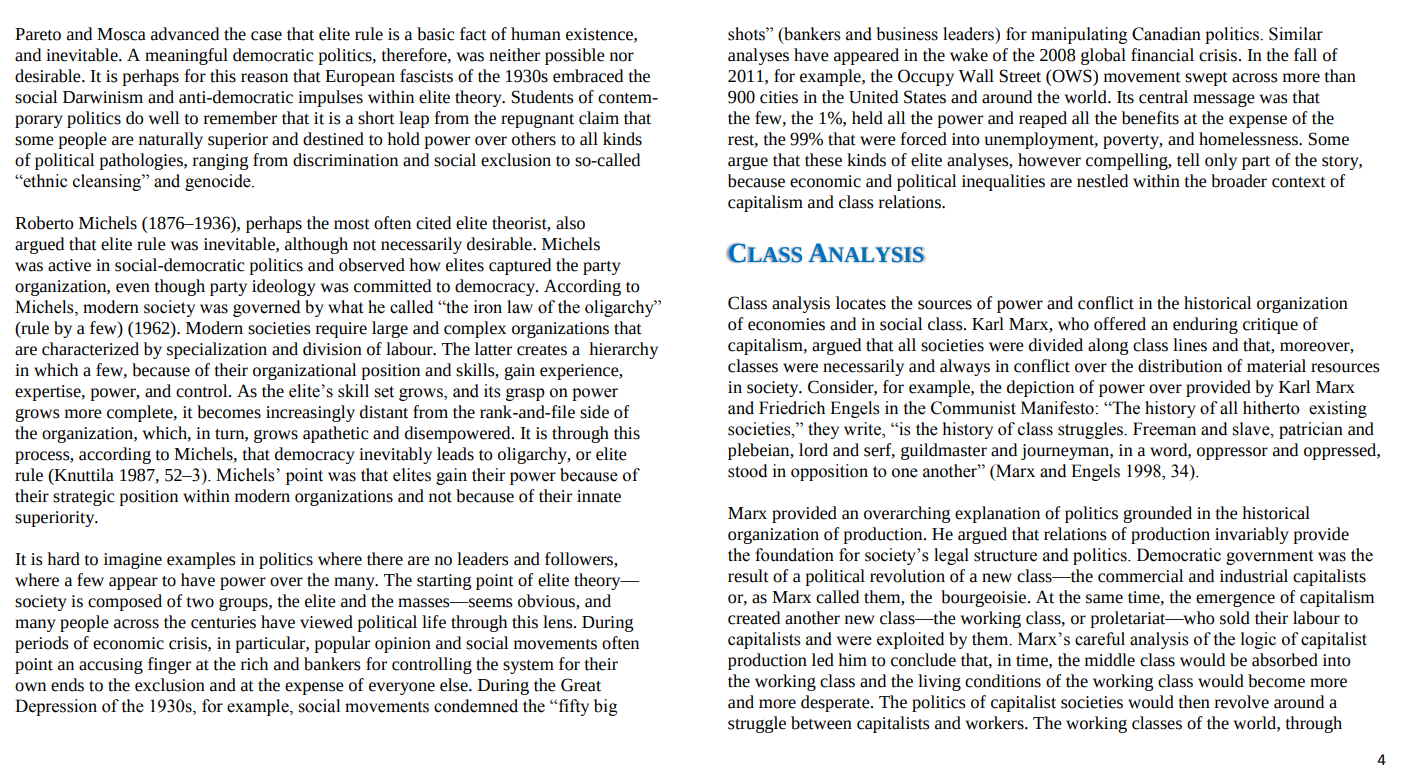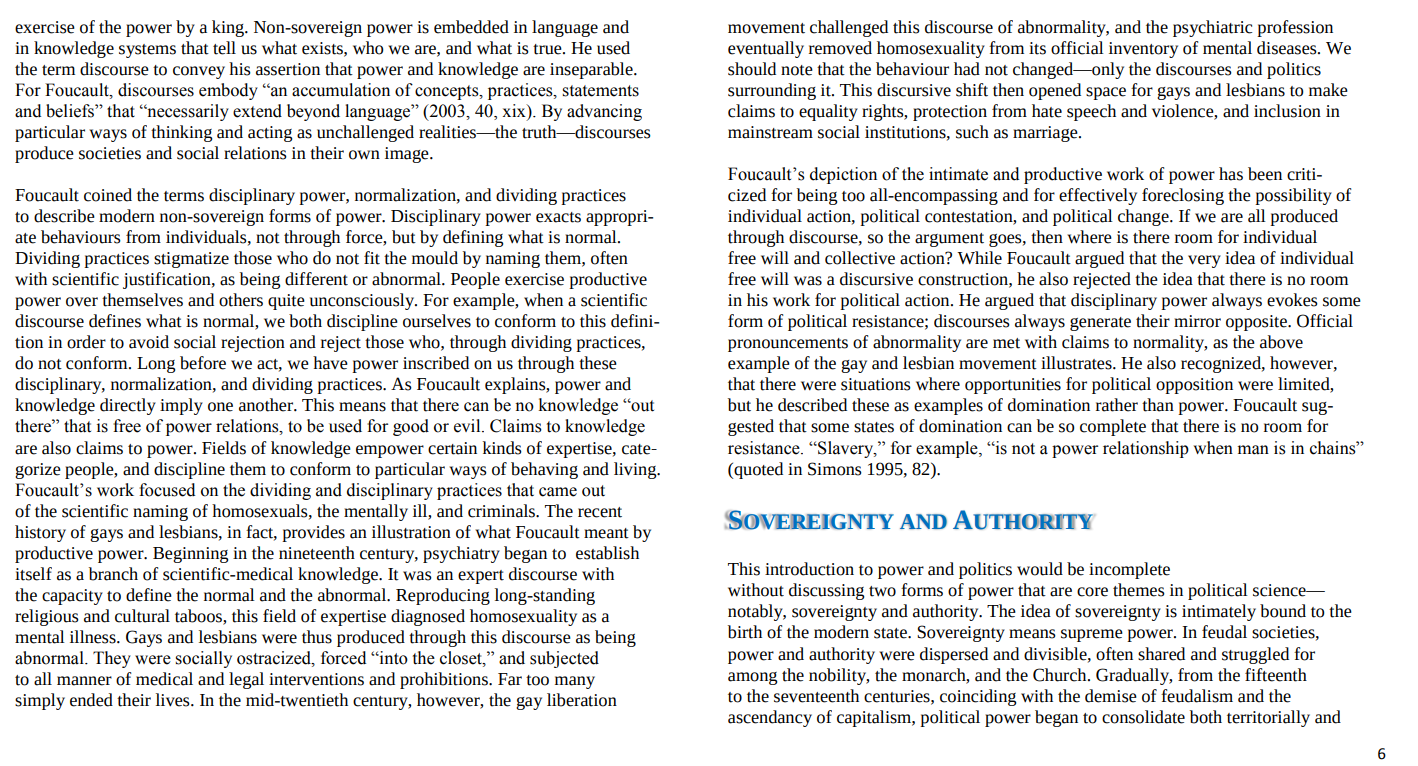This small essay by Janine Brodie called “Power and Politics” has several other issues, but their most frustrating one is their outright DISMISSAL of Marxist class analysis for the stupidest reasons. Economic determinism? I guess if you yearned to softly dismiss marx by misrepresenting him.
God I fucking hate poli sci majors.
The previous page:

The next one:

I’m not the brightest crayon in the box but is it just me or does Doctor Brodie somehow make politics and power some sort of vague, unsolvable mystery? Like fr I don’t want just an echochamber of nodding heads plz help am I in the wrong?
I need help putting words to my issues with it.


What Marx said about it (emphasis added)
Aristotle therefore, himself, tells us what barred the way to his further analysis; it was the absence of any concept of value. What is that equal something, that common substance, which admits of the value of the beds being expressed by a house? Such a thing, in truth, cannot exist, says Aristotle. And why not? Compared with the beds, the house does represent something equal to them, in so far as it represents what is really equal, both in the beds and the house. And that is – human labour.
There was, however, an important fact which prevented Aristotle from seeing that, to attribute value to commodities, is merely a mode of expressing all labour as equal human labour, and consequently as labour of equal quality. Greek society was founded upon slavery, and had, therefore, for its natural basis, the inequality of men and of their labour powers. The secret of the expression of value, namely, that all kinds of labour are equal and equivalent, because, and so far as they are human labour in general, cannot be deciphered, until the notion of human equality has already acquired the fixity of a popular prejudice. This, however, is possible only in a society in which the great mass of the produce of labour takes the form of commodities, in which, consequently, the dominant relation between man and man, is that of owners of commodities. The brilliancy of Aristotle’s genius is shown by this alone, that he discovered, in the expression of the value of commodities, a relation of equality. The peculiar conditions of the society in which he lived, alone prevented him from discovering what, “in truth,” was at the bottom of this equality.